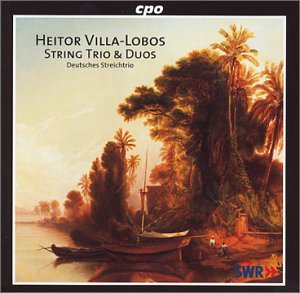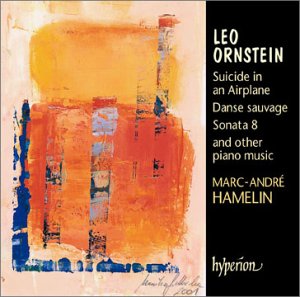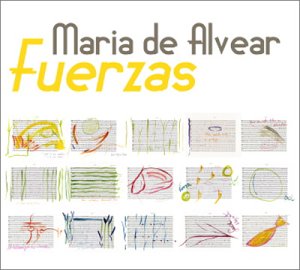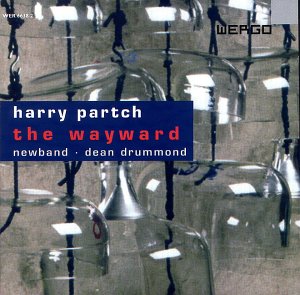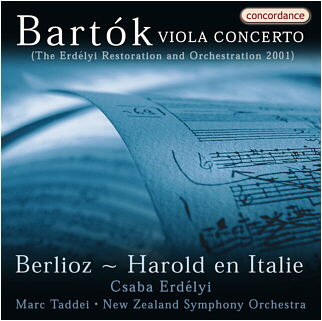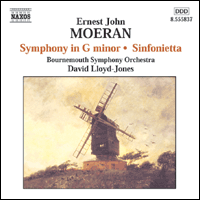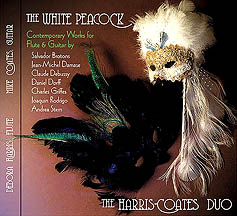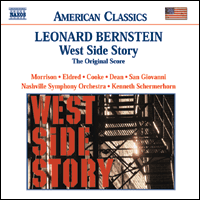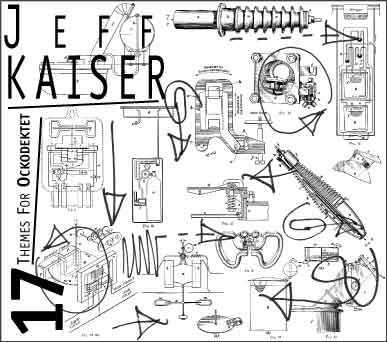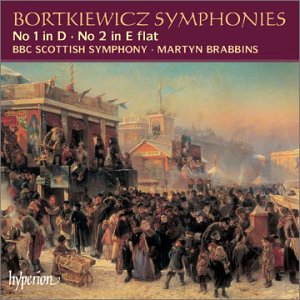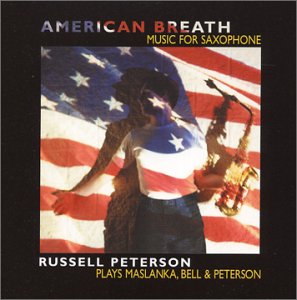Relax,
the
ACO
is
In
Good Hands
|
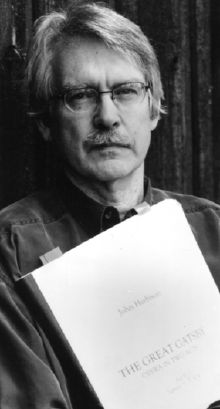
|
John
Harbison's Four Psalms highlighted the debut of the American Composers
Orchestra under Steven Sloane.
by Jerry Bowles
Harry
the Horse had the odds about 5-1 against Steven Sloane being the right
pick to replace Dennis Russell Davis as music director of the irreplaceable
American Composers Orchestra (ACO). After all, the much-traveled journeyman
conductor Sloane lives in Germany and already holds three music directorships
in Europe. He doesn’t specialize in “new” or “American” music, which is
all the ACO plays. And his only trial run here last March was distinctly
underwhelming.
Little
wonder that many new-music-loving railbirds—myself included—were concerned
about the future of this extremely precious musical resource. Fortunately,
the Horse et al had this one wrong. In his November 3 debut at the
helm of the ACO, Sloane set a brisk, smart and sure pace through a wide
range of musical styles with a finesse that suggests that he may be more
than just cheap speed after all.
The event
was billed as a A Program of Psalms, with the opening half devoted
to three ACO-commissioned world premieres--by David Lang, Shulamit Ran,
and Milton Babbitt--along with selections from Jon Magnussen's Psalm
and two a cappella psalm settings by Charles Ives. The second half of the
concert featured the New York premiere of John Harbison's Four Psalms--a
work originally commissioned to mark the 50th anniversary of the State
of Israel that combines psalm settings with contemporary texts.
Sloane
approached each work thoughtfully, drawing from the orchestra performances
that accentuated and differentiated each composer’s style and intent.
Langs' how to pray was a simple, wordless and hypnotic meditation
that demonstrated the popular Bang on a Can leader’s ability to employ
plain, repeating bass notes over softly crooning strings to create musical
statements that are simultaneously small and monumental.
Four excerpts
from Psalm, a recent setting of Psalm 61 and Psalm 113, by Jon Magnussen,
born in Sierra Leone and now living in Princeton, showed what innovative
and compelling things can happen when Euro-American music form meets Third
World rhythm. Magnussen's Psalm was commissioned by the José
Limón Dance Foundation, based on a video reconstruction of the late
choreographer's dance dating from 1967. The work features a small orchestra
without violins, chorus, and baritone soloist John Hancock.
Milton Babbitt's
From
the Psalter, is a setting of Psalm 13, envisioned by the composer as
an accompanied recitative, dedicated to soprano soloist Judith Bettina,
who made child’s play out of its 12-tone trickery. The piece was
short but vibrant and oddly melodic or perhaps my ears are finally catching
up with Babbitt.
Most
impressive was Shulamit Ran's Supplications (for Chorus and Orchestra),
which contains settings of fragments from the well-known Psalm 23
("The Lord Is My Shepherd") in both Hebrew and English. Ran’s says her
intention was "to create a narrative, which may be likened to a one-way
conversation with God which, ultimately, is also a journey of self-revelation."
If so, Ran must have been concerned about God’s hearing. The piece
was a loud, but orderly, seven-minute conversation which used crashing
cymbals, big choral swells and complex well-etched harmonies to make sure
the message was heard.
The concert’s
main course was John Harbison’s Four Psalms (1999), a 40-minute
work for chorus and orchestra, in which settings of Psalms in Hebrew are
mixed with text in English that Harbison gathered from his own interviews
with Israelis and Palestinians from all levels of society. While
these additions made the piece more contemporary and relevant, they also
attracted a great deal of controversy not unlike the unhappiness that has
plagued John Adams’
Death of Klinghofer. Wisely, Harbison
ignored the criticism and stuck with the piece as written.
Musically,
I often find Harbison’s work too studied and gnarly by half but, under
Steven Sloane’s steady guidance,
Four Psalms proved to be a deeply
affecting, direct and accessible masterwork with a musical (and perhaps
moral) clarity that transcends its beginnings as an “occasional” piece.
(Don’t forget that Britten’s
War Requiem was also written for a
special occasion--the 1962 reconsecration of Coventry Cathedral which had
been destroyed during the Battle of Britain in World War II.) Four
Psalms may not prove to have the legs of that venerable precursor,
but this performance made a persuasive case that it belongs in the same
race. And, the concert as a whole, suggests that if Steven Sloane devotes
enough time to the ACO, he can emerge a winner for the orchestra, new music
lovers, and himself.
|
|
|
| FANS
OF THE NEW: We've all heard the rap - challenging contemporary music
doesn't sell. So how to explain the crowds making their way up to Columbia
University's Miller Theatre, where George Steel has put together programs
of contemporary concert music? "Mr. Steel's belief in the drawing power
of contemporary music contradicts what most consultants seem to be telling
beleaguered American orchestras, where executives, long rattled by the
graying of classical music audiences, are now grappling with the dismal
economy as well." The New York Times 11/10/02
BY
"AMERICAN" YOU MEAN... What defines an American composer? Is it someone
born there? Some born elsewhere but who works there? Could it be, as composer
Frederic Rzewski, believes, that "the first and foremost expression of
any composer, himself included, is the aspiration of the national culture
into which he or she was born?" NewMusicBox.com 11/02
HOW
TO MARKET YOUR OPERA: It is an undeniable fact that the ticket base
for performing arts organizations is shifting from subscription holders
to single-ticket buyers. But what to do about it? The Minnesota Opera has
an idea: a glossy, irreverent opera primer distributed absolutely everywhere
in the Twin Cities and aimed at impulse buyers. The booklet provides an
overview of the season, but also a history of opera in general, suggestions
on what to wear and when to applaud, and personality descriptions of the
various voice parts, including "Tenor: Often kill themselves; almost always
gets the girl." Saint Paul Pioneer Press 11/07/02
MUSIC
ON FILM: "The Other Minds Film Festival, the first U.S. avant-garde
music festival devoted mainly to film, which opens today at San Francisco's
Castro Theater. The three-day festival intersperses screenings — half of
them American premieres — with live performances, filmmaker and composer
appearances, and the world premiere of a medley of organ works by Australian-born
American composer Percy Grainger, arranged for the Castro's gargantuan
Wurlitzer by David Hegarty." Andante 11/08/02
THE
YOUTH MOVEMENT HITS THE AIR: It's only a radio program, but it may
just be the best thing ever to happen to kids who spend their time in the
practice room rather than on the football field. From the Top, hosted by
acclaimed pianist Chris O'Riley, is a remarkable combination of live music,
cornball skits, and lighthearted conversation about the joy of performing,
with the under-18 set taking center stage. Now, with the show a runaway
success on public radio, plans are in the works for a TV version. Star
Tribune (Minneapolis) 11/08/02
THE
FUTURE OF STREAMING: It's called Internet2, and it is powerful. Forget
about your wussy DSL hookups and T1 lines - this baby can transmit 70Mbps
straight to your computer, and blast the sound (and image) of a live symphony
orchestra through a 12-speaker system with digital quality and no breaks
in service. Where can you sign up? Um, you can't. Sorry. Be patient. Wired
11/08/02
CALL
ME BABY, ONE MORE TIME: Songs about phones are being recycled as ring
tones on newer-style phones. "At first glance, there's a weird circularity
in that idea but the truth is, pop music and the phone have a long-established
symbiosis - developments in telephony have been paralleled in lyrical shifts.
Hundreds, if not thousands, of songs have been built around the imagery
of telephones, around calling and waiting to be called." The Age (Melbourne)
11/08/02
MUSIC'S
DECLINING HOLD ON HIGH CULTURE: Why has interest (and funding) for
new music faded away in Britain? "Given the genuinely diversifying society
of this country, it seems improbable that the surviving directors and institutions
of our post-war high culture will ever regain quite the centrality and
influence they once exercised. The support that composers can expect from
that quarter, therefore, will doubtless remain restricted." The Independent
(UK) 11/01/02
ORCHESTRAS
DYING? LET'S CHECK THE EVIDENCE: There are altogether too many columns
decrying the death of classical music, writes Justin Davidson. But "the
American Symphony Orchestra League's numbers show that U.S. orchestras
gave more concerts and sold more tickets in the 2000-2001 season than ever
before. Revenue from ticket sales - $775 million across the country - had
climbed by 37 percent in five years. A few months later, the World Trade
Center tumbled, and so did ticket sales, but only temporarily. At the New
York Philharmonic, which might be expected to have suffered disproportionately
from post-Sept. 11 doldrums, the box office remains steady." Newsday 11/10/02
CHANGE
AT THE TOP: "The new millennium seems to be generating a new spirit
of musical adventure; more than a dozen top orchestras are embarking on
brave new eras, most under younger leadership. In a world traditionally
resistant to regime change, nine major batons have just changed hands,
six more are in the process and another half dozen up for grabs. This is
a major moment of transition, with a younger generation taking charge of
many of the world's great orchestras." The Observer (UK) 11/03/02
|
Last
Week's News

|
Record
companies, artists and publicists are invited to submit CDs to be considered
for our Editor's Pick's of the month. Send to: Jerry Bowles, Editor,
Sequenza 21, 340 W. 57th Street, 12B, NY, NY 10019 Also, feel free
to nominate your favorite composer-- even if it's you--for Spotlight of
the Week.
|
RARE
PERFORMANCE OF
SEEGER
VIOLIN SONATA
Violinist Brennan
Sweet and pianist Jenny Lin will perform violin sonatas by Brahms (in A-Major
Op. 100) and Grieg (in C-minor Op. 45), as well as the rarely performed
violin sonata by Ruth Crawford Seeger and the New York premiere of Chorale
by James Tenney, arranged for violin and piano by Marc Sabat, at the. Museum
of the American Piano on Monday, November 18th, 2002 at 7 pm. The museum
concert hall is located at 291 Broadway, New York, NY 10007-1814. For reservations,
please call 212.406.6060. |
|
BOSSA
NOVAE
By
Deborah Kravetz
| After
ten years of antiquae , the chamber choral ensemble Voces Novae et Antiquae
is celebrating its tenth anniversary season with a lot of novae. Not too
novae , however, but more than a tentative step into the pool of twentieth
century choral literature.
This
program focused on the early part of this century, the 1920s, with one
piece composed in 1967. The theme of this program is that of death, from
The Last Invocation, through the war against evil, the farewell of Evening
Watch, and the plea for mercy of the Mass. It is the Psalms in the center
that bring a celebration of life with joy. Director Robert A.M. Ross provides,
as usual, a dissertation on history and style to accompany his musical
analysis of this program.
The
Last Invocation of 1922, by Randall Thompson, presents a tone poem
of flowing lines in sometimes Gregorian harmonics, but also more modern
dissonances using text by Walt Whitman from Leaves of Grass. The
group here suffered from thinness, lack of depth, sudden spottiness, indistinct
consonants and several ragged entries. Swelling harmonies and continual
flow smoothed over some of the evident roughness.
The
diction in The Peaceable Kingdom (1936), also by Thompson, was
amazingly
clear, the energy and anger appropriately controlled, capped by
some
sublimely blended chords reflective of the exhortatory texts from Isaiah
on war between the forces of good and evil. Ross’s ability to shape lines,
emphasis and dynamics was also evident.
Tzvi
Avni’s Mismorei T’hillim (Psalm Songs), was commissioned for a 1967
festival of professional choruses, and the texts he selected (Psalms 47,
48 and 150) reflect the beauty of the land of Israel and the joyful praise
of a new immigrant. The jagged rhythms are matched by the astringency of
the harmonics and contrast with sudden unison passages.
The
Evening Watch, composed by Gustav Holst during the period of 1925 to
1928, sets text by Henry Vaughan on the peacefulness of sleep, and relies
heavily on stacks of chords built on fourths. The resulting dissonance
can make the ear wince if held too long, but Holst’s resolutions slide
off into other chilling dimensions.
Mass
in G Minor, while resembling Gregorian chant and Renaissance
polyphony,
was Ralph Vaughan Williams’ 1922 contribution to the revival of English
choral tradition. The double chorus structure can be daunting for a small
ensemble, but in this case imparted a sense of intimacy. By this part of
the program, the group had relaxed into their voices, and were quickly
responsive to the rapidly changing rhythms and dynamics.
The
program closed with Ave Maria by Franz Biebel, which demonstrated
sweet
harmonics punctuated by dissonances in overlapping lines, as a
delicate
miniature with heart-stopping chords.
Programs
this season will continue with compositions through the twenty-first century.
VOCES
NOVAE ET ANTIQUAE
A
Cappella Masterpieces
Trinity
Center
Philadelphia
October
25, 2002
(Reposted
from Penn Sounds 11/8/02)
|
COPLAND &
MEXICO
AT AMERICAS SOCIETY
The
Americas Society “Music of the Americas” concert series will present
“Copland & Mexico” on Friday, November 15, 2002, 7:30 PM at the Americas
Society, 680 Park Avenue, corner of Park Avenue and 68th St. in Manhattan.
This will be
the launch of a five-year series of Americas Society/Copland House programs,
in collaboration with the Mexican Cultural Institute of New York, that
will explore the important role played by Aaron Copland as Cultural Envoy
of the U.S. State Department and will present the impassioned, intensely
colorful music of provocative Latin composers, and their influence on their
northern neighbors.
The program
for “Copland & Mexico”, performed by Music from Copland House, the
acclaimed ensemble-in-residence at Aaron Copland’s restored, longtime home
near New York City, will include music by Aaron Copland (El Salón
México and Sextet for string quartet, clarinet & piano), Carlos
Chávez (Spirals for violin and piano), Silvestre Revueltas (Four
Pieces for two violins and cello, and selected songs), Blas Galindo (Tres
Canciones for soprano and piano), Samuel Zyman (Sonata for Flute and Piano)
and the New York Premiere of Daniel Catán’s Encantamiento in its
version for flute and violin.
Artist members
of Music from Copland House include pianist and Copland House Artistic
Director Michael Boriskin, flutist Paul Lustig Dunkel, clarinetist Derek
Bermel, and cellist Wilhelmina Smith. They will be joined by several outstanding
guest artists: soprano Susan Narucki, violinists Curtis Macomber and Nurit
Pacht, and violist Leslie Tomkins.
General admission
tickets are $15, Students & Seniors $10. Reservations can be made by
calling 212-249-8950 ext 363 or by email at music@as-coa.org.
Concert
Info
|
Classical
Grammy Winners
Previous Interviews/Profiles
Simon
Rattle, Michael Gordon,Benjamin
Lees, Scott Lindroth,
David
Felder, Mark-Anthony
Turnage, Erkki-Sven Tüür,John
Luther Adams, Brett Dean,
Judith
Lang Zaimont,
Meyer
Kupferman, Evan Chambers,
Poul
Ruders,
Steven R. Gerber,
Gloria
Coates
Previous Articles/
Busoni
The Visionary
The
Composer of the Moment: Mark-Anthony Turnage
Electronic
Music
Voices:
Henze at 75
Henze
Meets Emenim
On
Finding Kurtag
Charles
Ruggles: When Men Were Men
Ballet
Mécanique
The
Adams Chronicles


|
|





